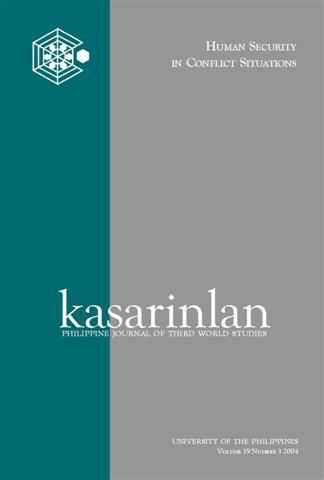Framing Ethnic Conflict and the State in Southeast Asia
Abstract
This paper presents a critical review of the concept of ethnicity as an important variable in the study of conflict and other power arrangements in Southeast Asia. It relates ethnicity with organizing concepts such as culture and nation. Afterwards, it looks into how ethnicity is perceived in various spaces of contestation in the region. It specifically focuses on how state action serves to strengthen or weaken, delay or hasten, and contract or expand the range of effective influence of ethnic conflict in the region. The paper presents two models of political action that seeks to assist scholars and decision-makers gain a functional understanding of ethnic conflict accommodation. Finally, hotspots in the region are identified and studied in terms of the concepts and models presented earlier.
Published
2007-12-16
How to Cite
SANTAMARIA, M.C.M..
Framing Ethnic Conflict and the State in Southeast Asia.
Kasarinlan: Philippine Journal of Third World Studies, [S.l.], v. 19, n. 1, p. 04-36, dec. 2007.
ISSN 2012-080X.
Available at: <https://journals.upd.edu.ph/index.php/kasarinlan/article/view/658>. Date accessed: 27 aug. 2025.
Section
Articles
Keywords
Southeast Asia; ethnic conflict; ethnicity; state violence
By submitting a manuscript, the authors agree that the exclusive rights to reproduce and distribute the article have been given to the Third World Studies Center.



